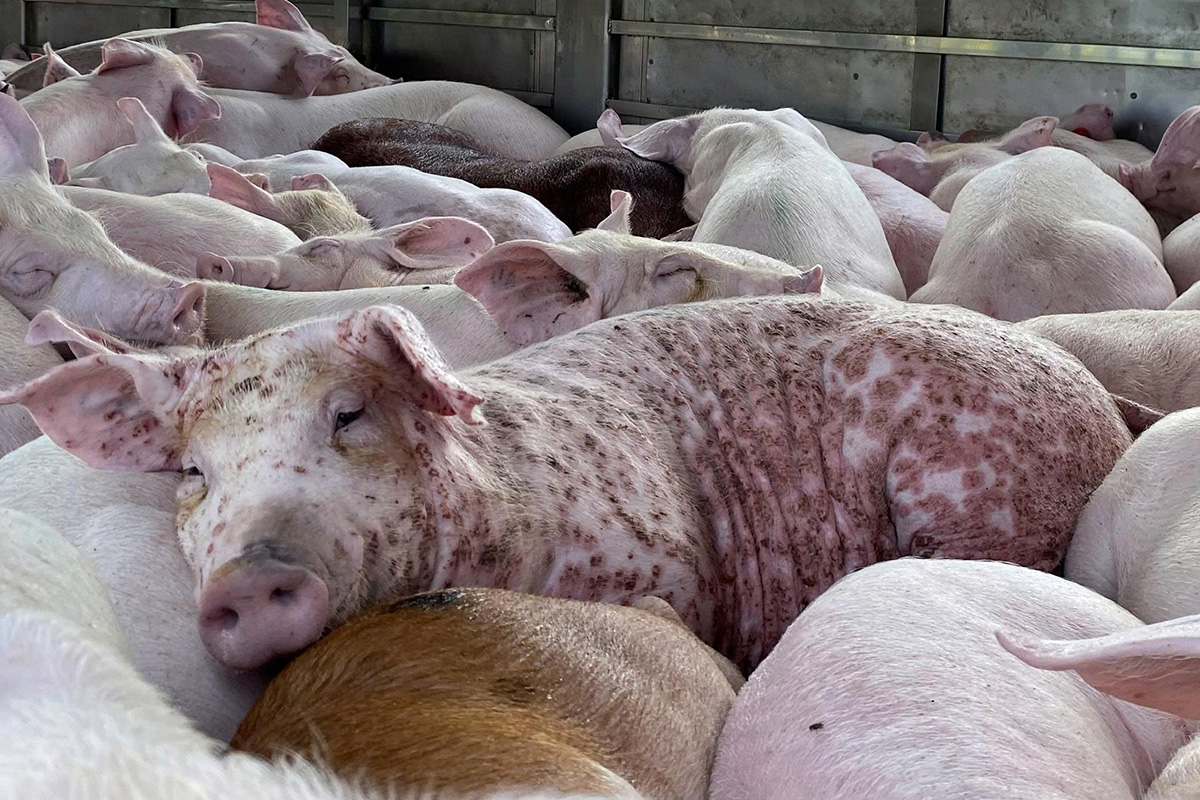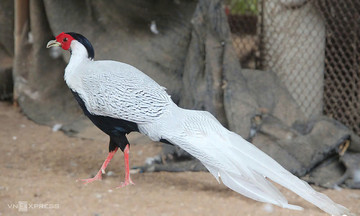Market Management Team No. 4 (Gia Lai Province Market Management Department), in collaboration with relevant units, discovered approximately 220 pigs showing signs of disease, some already dead, on a truck on 7/8.
Hanh, the owner of the shipment, failed to present any business documents, invoices, or certificates proving the origin of the pigs. She admitted the pigs were from various unverified sources and intended for resale.
 |
The pigs were seized by authorities before being sold. Photo: Nguyen Chon |
The pigs were seized by authorities before being sold. Photo: Nguyen Chon
Market management authorities and veterinary forces tested the pigs, which tested positive for African swine fever. Officials documented the incident, interviewed those involved, and prepared to issue administrative penalties and destroy the infected pigs.
Originating in Africa, African swine fever spreads rapidly with a near 100% mortality rate in infected pigs. The virus, found in blood, organs, and bodily fluids of infected pigs, is highly resistant to low temperatures, surviving even freezing, and is only killed at 70 degrees Celsius. Transmission occurs through respiratory and digestive routes, either directly or indirectly through contact with contaminated materials. While the disease doesn't infect humans, they can act as carriers.
According to the Ministry of Agriculture and Rural Development (MARD), from the beginning of the year to early August, African swine fever outbreaks occurred in 972 locations across 718 communes and wards in 33 out of 34 provinces and cities nationwide, resulting in the deaths and culling of over 100,000 pigs. Currently, 542 communes in 30 provinces and cities have not yet passed the 21-day period since the last outbreak.
Compared to the same period in 2024, the number of infected, dead, and culled pigs has decreased by over 34%. Despite this decrease, the Department of Animal Health reports a national resurgence of the disease. The proportion of pigs infected with the recombinant genotype I-II strain (first appearing in Vietnam in 2023) is notably increasing.
Tran Hoa












